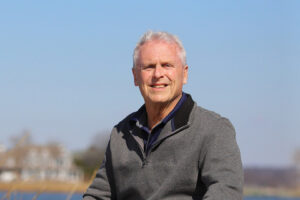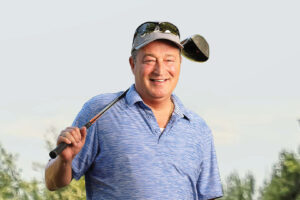At 69, Bonnie Shain is fit and active. A former physical education teacher, she plays pickleball several times a week and chases after her five grandchildren. So when her chest felt heavy and her limbs suddenly felt weak following an intense pickleball game, she took it seriously.
“I sat down to catch my breath and knew something was wrong,” the Manalapan resident recalls.
Bonnie sought emergency care, and testing confirmed a heart attack with two blockages that required open-heart bypass surgery. After her surgery, her goal was simple: to feel strong enough to play in a pickleball tournament three months later. This led Bonnie to CentraState’s Cardiac Rehabilitation Program.
“Because most patients can’t use their upper bodies for six weeks after bypass surgery, they’re pretty deconditioned when they start rehab,” explains Nicole Interrante, BSN, RN, CVN-BC, CCRP, manager of Cardiovascular Services at CentraState. “They’ve been through a lot of trauma and stress from surgery and the cardiac event leading up to it. Bonnie was anxious because although she had been very active before, she didn’t know what her body could do after surgery.”
Exercising Safely After Heart Surgery
Certified by the American Association of Cardiovascular and Pulmonary Rehabilitation, CentraState’s Cardiac Rehabilitation Program combines supervised exercise with education. The team is led by a board-certified cardiologist and includes certified exercise physiologists and registered nurses certified in cardiac care rehabilitation. Patients benefit from gradually more challenging monitored exercise and one-on-one support from a dietitian and social worker.
“We measure the intensity of exercise via metabolic equivalents, or METs,” Interrante explains. “This means that in every session, we’re documenting how hard patients are working and coaching them to increase their intensity safely.”
Under the guidance of two exercise physiologists, Bonnie’s low-impact exercise regimen included using a treadmill, arm ergometer (exercise machine) and recumbent bicycle before she graduated to weight training.
“The team is very knowledgeable,” Bonnie says. “They watch every patient and provide hands-on support. They helped me regain my strength in time for my pickleball tournament, which meant a lot to me.”
While most participants graduate from rehab after 12 weeks, Bonnie was discharged two weeks early after making great progress. She and her pickleball partner won the summer tournament, and then secured two gold medals at the New Jersey Senior Olympics this past fall.
“My muscles are stronger now than before surgery,” Bonnie says. “I play a few hours of pickleball in the morning, and I’m teaching my grandkids how to play. I’m exercising more than ever and feel great.”
CARDIAC REHAB AT CENTRASTATE
Learn more about cardiac rehab at CentraState.





